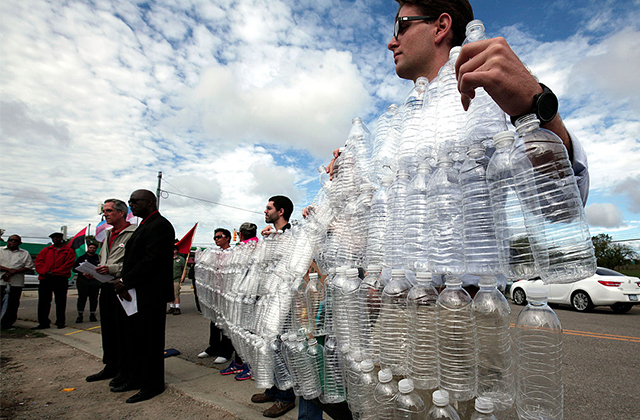New Water Bill Passes Senate, Can Provide $270M to Lead-Affected Communities

Yesterday (September 15), the Senate voted 95-3 to pass the $9.4 billion Water Resources Development Act of 2016, or WRDA, which would provide funding for water infrastructure projects in 17 states, including $270 million for cities harmed by lead like Flint, Michigan. The House must approve the bill before the president can sign it into law.
“Today’s passage is an important reminder to the nation that the crisis in Flint is far from over,” said Sen. Debbie Stabenow (D-Mi.) in a statement released yesterday. “Today families still cannot drink the unfiltered water that comes out of their faucets! Now, our colleagues in the House need to act as quickly as possible. It's also essential that the State of Michigan fully meet their responsibilities to solve the water crisis.”
Flint funding would kick in immediately upon House approval, unlike other projects related to levees, dams and flood mitigation in states like Louisiana, which experienced historical flooding last month.
As The New York Times wrote about these projects:
The measure, the Water Resources Development Act, includes no immediate funding for that water infrastructure; rather, it maps out projects that would be eligible for future federal spending from Congress’s appropriations committees. Lawmakers have used past water resources bills to brag to their constituents about projects that may never be funded.
However, not all advocates are satisfied with how the package funds Flint. “We urge the House of Representatives to pass a more robust version of the Flint Aid Package included in the Senate version of WRDA,” said Food & Water Watch Executive Director Wenonah Hauter, in a statement sent to Colorlines.
The group’s main concern is the act’s inclusion of the Water Infrastructure Finance and Innovation Act (or WIFIA), which was established in 2014 and would become permanent with current provisions in WRDA, according to Food & Water Watch.
Hauter continued:
“Because [WIFIA] requires communities to have a high bond rating, by law, WIFIA cannot help cash-strapped communities with the serious water needs like Flint. WIFIA is currently a pilot program that has yet to issue a loan, much less complete a required study of its efficacy. If made permanent, WIFIA will undermine and compete with the established, reliable State Revolving Fund programs, taking money away from cash-strapped community water systems to fund corporate water projects.”
The WRDA will also provided water settlements related to several Native people: the Chocktaw Nation of Oklahoma, the Chickasaw Nation, the Muscogee Creek Nation, the Pechanga Band of Luiseño Mission Indians, the Navajo Nation and the Blackfeet Nation.
Read the bill in full here.
